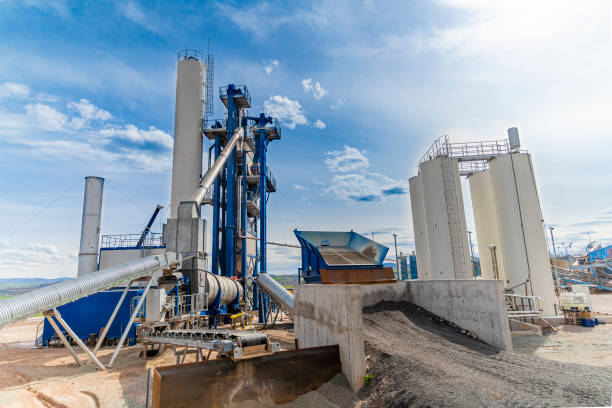In the ever-evolving construction industry, understanding the role of construction aggregates is crucial for building the future. These essential materials form the backbone of modern infrastructure, providing the strength and stability needed for everything from skyscrapers to roads. As we delve into the importance of aggregates, we uncover their significance in ensuring durable and sustainable structures that support our growing communities. Whether you're a seasoned professional or a student eager to make your mark, recognizing the types of aggregates and their applications can empower you to contribute effectively to the field. Join us as we explore how these fundamental components are shaping tomorrow's landscapes, ensuring safe and efficient construction practices.

Importance of Aggregates
Construction aggregates play a pivotal role in the building industry, forming the backbone of our infrastructure. Their significance extends far beyond mere filler materials, as they contribute to the strength, durability, and longevity of structures. Let's explore how these essential components shape the foundation of modern construction and enhance structural integrity.
Foundation of Modern Construction
Construction aggregates are the unsung heroes of the building world, providing the solid base upon which our cities rise. These materials, ranging from crushed stone to sand and gravel, are integral to creating stable foundations for structures of all sizes.
In concrete production, aggregates make up 60-75% of the total volume, significantly influencing the concrete's properties. They not only reduce the cost of concrete but also contribute to its workability, strength, and durability.
The versatility of aggregates extends to road construction, where they form the base and sub-base layers, providing crucial support for pavement structures. This application ensures that roads can withstand heavy traffic loads and varying weather conditions over time.
Enhancing Structural Durability
The role of aggregates in enhancing structural durability cannot be overstated. These materials contribute significantly to the long-term performance of buildings and infrastructure by improving resistance to wear, weathering, and other environmental factors.
Compressive strength, a key factor in structural integrity, is largely influenced by the quality and type of aggregates used. High-quality aggregates can increase the compressive strength of concrete, leading to more robust and resilient structures.
Thermal properties of aggregates also play a crucial role in building performance. Certain types of aggregates can enhance a structure's ability to regulate temperature, contributing to energy efficiency and comfort in buildings.
Moreover, the careful selection of aggregates can significantly impact a structure's resistance to chemical attacks and freeze-thaw cycles, further extending its lifespan and reducing maintenance costs over time.







